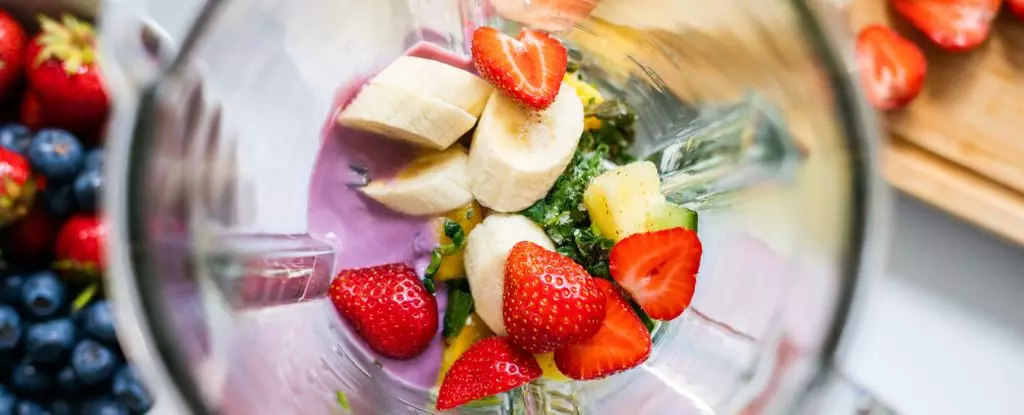When it comes to making a healthy berry smoothie, most people would instinctively add a banana for its potassium content and creamy texture. However, recent research from the University of California Davis (UCD) suggests that bananas might have a surprising effect on the antioxidants present in the smoothie. Flavonols, a type of antioxidant found in plant-based foods like berries, tea, cocoa, and various fruits, have been associated with improved cardiovascular health and cognitive function. Unfortunately, consuming a banana alongside these flavonol-rich foods may significantly decrease the levels of flavonol metabolites in the bloodstream.
In a controlled study conducted by the researchers at UCD, a small group of eight participants were given either a flavonol-rich berry smoothie or a simple flavonol capsule. After consumption, tests showed a significant increase in flavonol metabolite levels in their blood. However, when a banana was added to the berry smoothie, the levels of metabolites dropped by a staggering 84%. This unexpected finding highlights the impact that food preparation and combinations can have on the absorption of beneficial dietary compounds.
The reason behind bananas’ effect on flavonol levels lies in an enzyme called polyphenol oxidase (PPO). PPO is involved in the oxidation process that causes bananas to turn brown when peeled. When exposed to bananas, the antioxidants in the smoothie bind with PPO, preventing them from delivering their health benefits inside our bodies. To further understand this phenomenon, the researchers conducted an experiment where they measured the flavonol content of a banana-berry smoothie that was left at room temperature. Comparatively, the pure berry smoothie retained more flavonols, suggesting that PPO can indeed limit the availability of flavonols before they enter the bloodstream.
When the researchers inhibited PPO in the bananas, they found that the flavonol levels persisted. This implies that by reducing PPO activity, the absorption of flavonols can be enhanced. To investigate whether bananas affect flavonol absorption in the stomach, the researchers had participants consume a banana drink and a berry drink simultaneously. This prevented PPO from interacting with the flavonols before ingestion. Surprisingly, even in this controlled setting, the participants’ bloodstreams showed lower levels of flavonol metabolites compared to when they consumed none of the banana drink.
While this study was conducted with a small number of male participants, the researchers at UCD believe that these initial findings warrant further scientific attention. They emphasize the importance of considering not only the types of fruits and vegetables recommended for a healthy diet but also how they are prepared, stored, and consumed to maximize their potential health benefits.
As consumers, it is essential to be mindful of the potential interactions between different foods and their impact on nutrient absorption. While bananas are a valuable source of potassium and provide a creamy texture to smoothies, it might be worth reconsidering their inclusion when aiming to maximize the absorption of flavonols from other antioxidant-rich foods. By adapting our food preparation methods and exploring alternative combinations, we can ensure that we are efficiently fueling our bodies with the healthiest nutrients available.
Bananas, despite their many nutritional benefits, have been found to decrease the levels of flavonol metabolites in smoothies when combined with other antioxidant-rich foods. The presence of polyphenol oxidase (PPO) in bananas interferes with the absorption of flavonols in the body. To optimize the health benefits of flavonols, it is crucial to understand the impact of food combinations and preparation methods. Further research is required to delve deeper into this phenomenon and provide more comprehensive dietary recommendations to promote overall health and wellbeing.


Leave a Reply